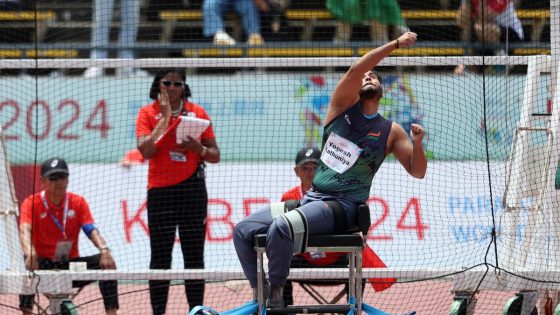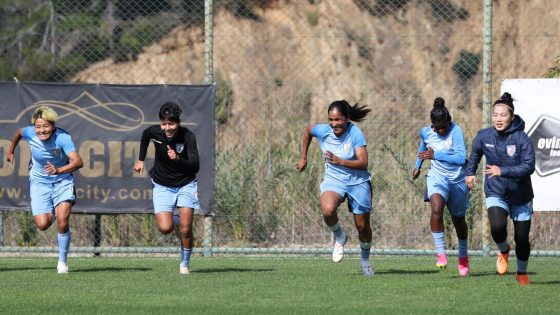This past month, India has had a close brush with the bittersweet emotions that come with finishing second. Neeraj Chopra missed out on a gold medal at the Paris Olympics, falling short by 3.52m. The same happened at the Lausanne Diamond League a little over two weeks later, with a deficit of 1.12m denying him the top spot once again. His face of utter disappointment on both occasions was something that’s hard to forget.
6,568 km away, in New Delhi, para discus thrower Yogesh Kathuniya could empathise. Ever since he won silver at the Tokyo Summer Games, Yogesh has found himself stuck one step away from the middle of the podium in international events.
“I won’t lie,” he tells Sportstar, ahead of the 2024 Paris Paralympics. “I was quite happy with how I performed in Tokyo. It was my biggest medal until that point. After that, a lot of things changed. My family was happy. I had a good throw there that could have bumped me to the gold medal position, but it ended up being a foul.”
ALSO READ | Paris 2024 Paralympics: Top five Indian debutants
“I got silver here (Tokyo), I got a bronze before (Dubai World Championships in 2019), so I thought going forward, I would get that gold medal. But then, in the World Championship in 2023 in Paris, the Asian Games in Hangzhou before that, and this year at the Kobe World Championships, I got back-to-back silver medals. That demotivated me a bit. I wasn’t able to satisfy myself, even if others were happy with what I was doing.”
Yogesh recalls countless conversations he’s had with himself in front of the mirror, despite technically doing the job — winning a medal. “Whenever I travelled to competitions, I’d tell the other athletes not to come anywhere near me if I won silver. I used to get really angry. Realistically, even a silver is such a big honour, especially for those coming through the ranks. But in me, there’s this big fire, and it’s just not getting extinguished. That’s a good thing, I guess. It keeps me going.”
Never say never
At the age of nine, Yogesh was diagnosed with Guillain-Barré Syndrome (GBS) — an autoimmune condition that attacks the body’s nerves. It left him wheelchair-bound for two years. Yogesh never thought he’d walk, let alone play sports.
His mother, Meena Devi, a homemaker, and his father, Gyanchand Kathuniya, a retired Indian Army officer, didn’t give up on him. Meena learned physiotherapy to assist her son and help with his recovery. Sure enough, in three years, Yogesh was on his feet again.
In 2016, a 19-year-old Yogesh discovered para sports with help from Sachin Yadav, the General Secretary of the student union at Kirori Mal College. Yadav introduced Yogesh to the world of para athletics, showing him videos of inspiring athletes from all over the world.
Two years later, Yogesh staked his claim in this universe with a world-record 45.18m throw in the F36 category at the 2018 European Championships in Berlin.
He would break the world record two more times in 2022, this time in the F56 category at the Indian Open National Para Athletic Championship, with the latest mark being a massive 48.34m throw on home soil.
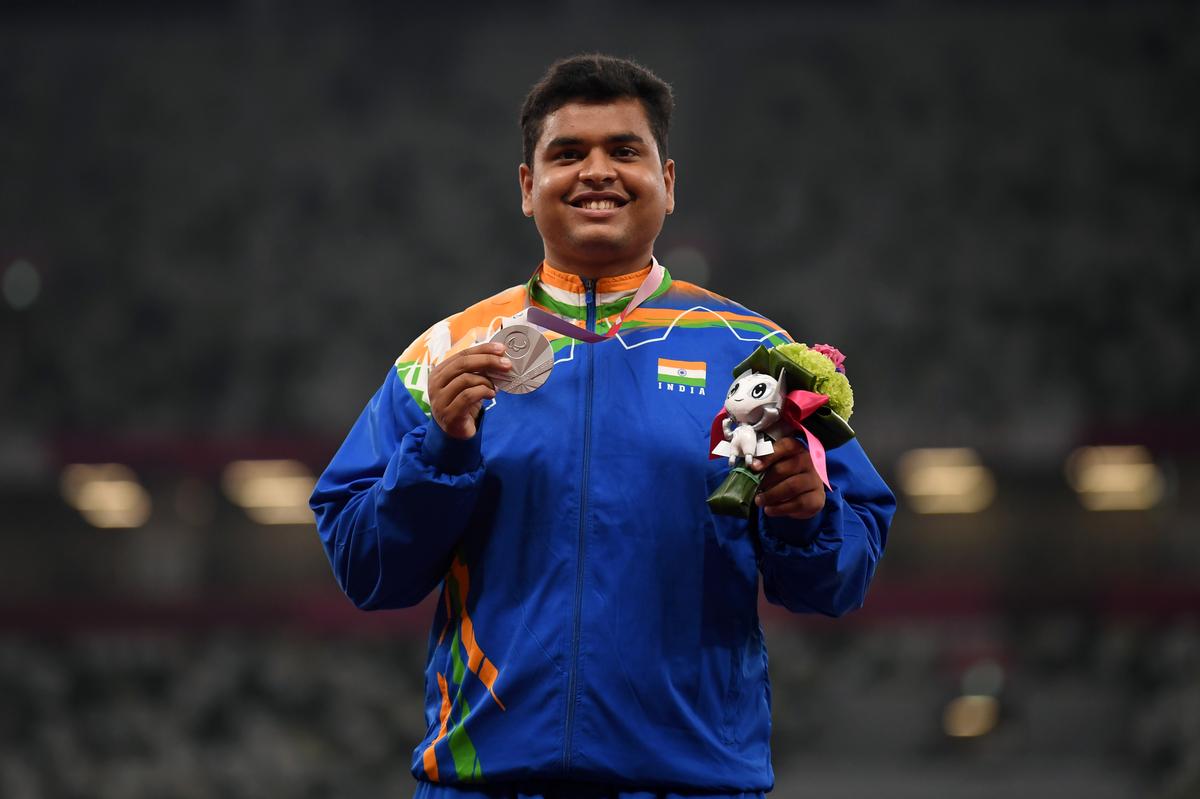
Hoping for a better reprise: Yogesh poses with his Tokyo Games silver medal. The Paris edition will be his third visit to the French capital, with each one marking a significant phase in the athlete’s life. “The one thing I want to do this year, hopefully after winning my medal, is to go back to Disneyland and ride that roller coaster again,” Yogesh chuckles.
| Photo Credit:
Getty Images
Hoping for a better reprise: Yogesh poses with his Tokyo Games silver medal. The Paris edition will be his third visit to the French capital, with each one marking a significant phase in the athlete’s life. “The one thing I want to do this year, hopefully after winning my medal, is to go back to Disneyland and ride that roller coaster again,” Yogesh chuckles.
| Photo Credit:
Getty Images
Fight to be fit
Yogesh towers over his competition, some of whom are in wheelchairs, but his GBS diagnosis means he can never take feeling healthy for granted.
“I tire out very soon. I have a neurological disorder, so muscle loss happens very quickly for me. I need to focus a lot on my diet and my workout. Sometimes, if I work out too much, I have trouble walking. It’s all about striking a balance.”
Towards that end, Yogesh — previously a vegetarian — added eggs and meat to his diet to better meet his protein requirements, given that his sport requires muscle strength and explosiveness.
2023 brought with it more health issues for Yogesh. He contracted chickenpox early in the year and was later diagnosed with cervical radiculopathy centred in the C4, C5, and C6 vertebrae. He fought through it to win a silver at the Asian Games.
“I had numbness in my left arm because of it. I didn’t realise what was happening. The pain kept increasing. I was unable to sleep properly. There were times I had to sleep sitting up. Anytime I straightened my neck, I would have pain. “ Eventually, I went for an MRI and got this diagnosis. Surgery was initially suggested, but I wanted to handle this with just rehab. My doctors told me that there was an 85 per cent chance to sort this out without surgery, and thankfully, that’s what happened.
“This injury caused a dip in my performance. For a long time, I couldn’t understand what was happening. I then hired a mental conditioning coach who continues to work with me. I was told that I tend to focus on the end result too much without focusing on the process. It’s something I’ve been working on to this day.”
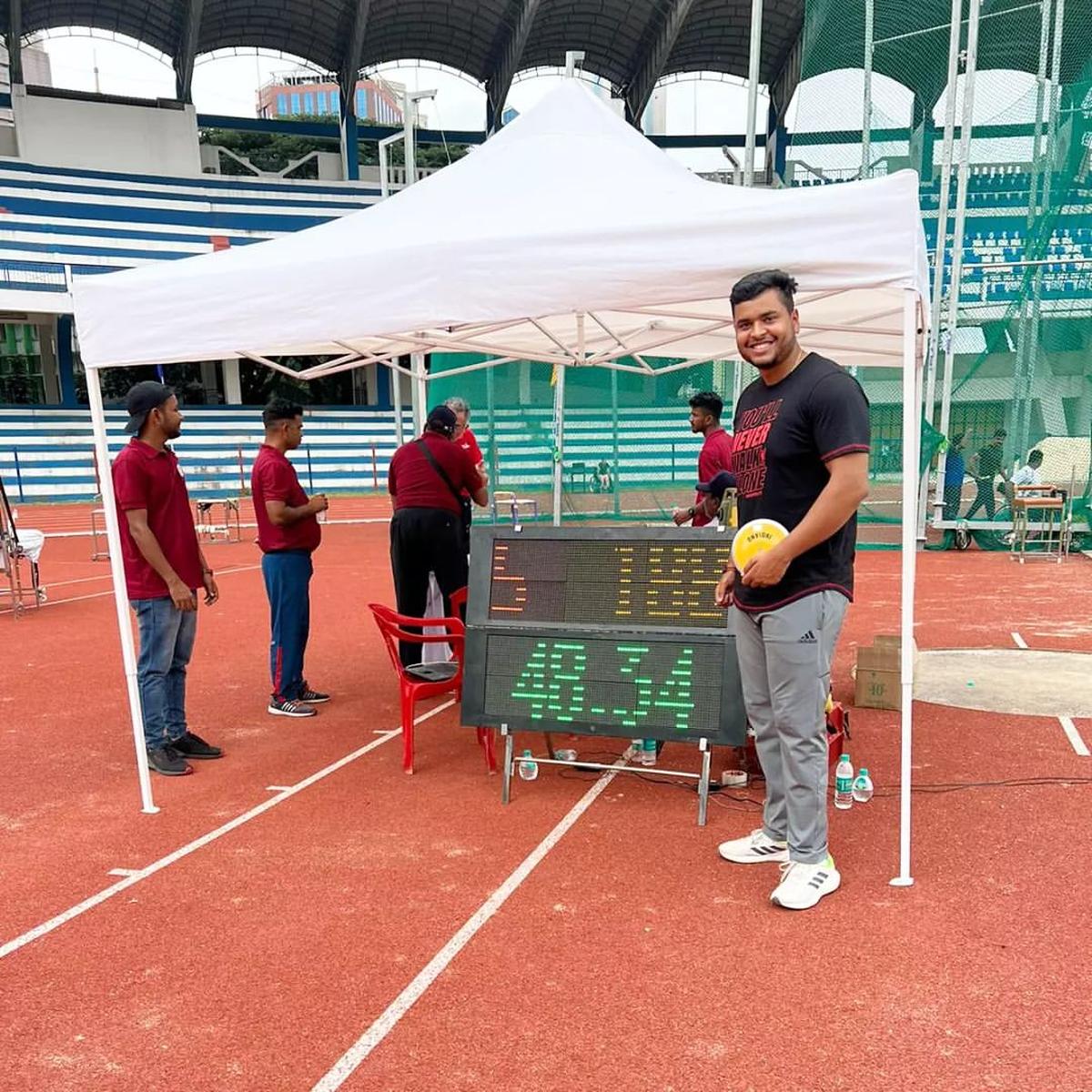
Yogesh currently holds the world record in men’s discus throw F56 event.
| Photo Credit:
Instagram/Yogesh Kathuniya
Yogesh currently holds the world record in men’s discus throw F56 event.
| Photo Credit:
Instagram/Yogesh Kathuniya
Eat, breathe, sleep sports
Yogesh’s routine is simple and focused. He starts his day at 6 a.m. and fits in two hours of training in the morning. After breakfast, he returns home. Due to the heat in Delhi, he prefers to slot his second training session in the evening.
Yogesh, like his parents, is god-fearing and is soothing his nerves ahead of an important Paralympic campaign with some help from the Shiv Puran.
“In the run-up to the Olympics, I started reading the Shiv Puran and want to finish it before I leave for Paris. “I talk to God a lot. I can’t tell you how many times I’ve asked God to change the colour of my medal. I have told God that if He stays with me and helps me get the job done in Paris, I’ll install a shivling near my house.”
Besides faith, one nagging ambition keeps Yogesh going — crossing the 50m barrier in discus throw. This particularly helps on days when he just isn’t mentally ready to get up and seize the day.
“I don’t have a plan B. My plan A — sports — is my only plan. Sometimes, if I wake up and don’t feel motivated, I only think about the 50m mark, and that pushes me to get going again.”
Check list
Much like that 90m mark becomes a safety cushion for someone like Neeraj, the 50m mark — uncharted territory in men’s discus throw — might just comfortably seal the deal for Yogesh.
“I just hope on the day of my event, I get a massive adrenaline rush or get nicely pumped up to break that mark.”
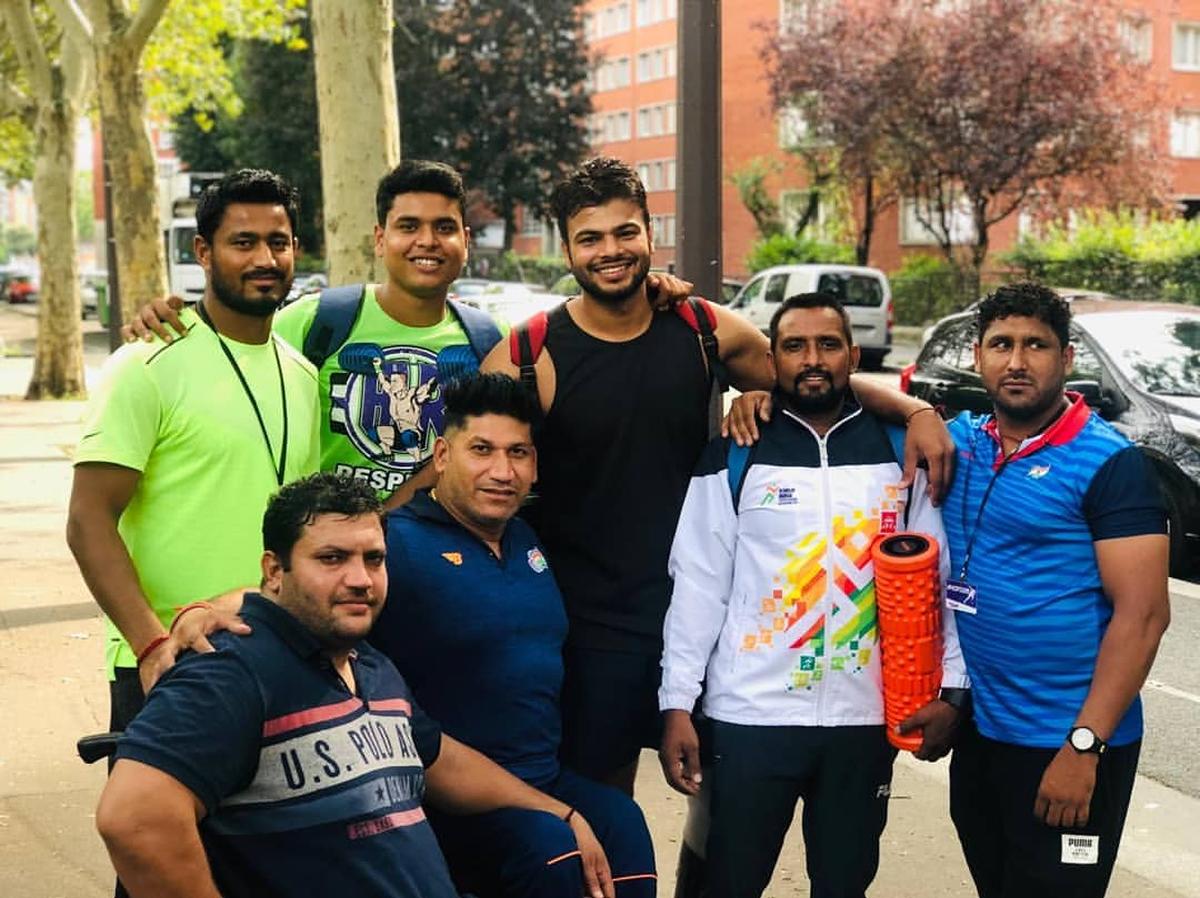
The Paralympics will be Yogesh’s third visit to the French capital.
| Photo Credit:
Instagram/Yogesh Kathuniya
The Paralympics will be Yogesh’s third visit to the French capital.
| Photo Credit:
Instagram/Yogesh Kathuniya
The Paralympics will be Yogesh’s third visit to the French capital, with each marking a significant phase in the athlete’s life. Don’t think Yogesh is all work and no play — there’s a touristy checklist safely tucked away somewhere in his kit bag.
“I went to Paris for the first time in 2019. It is such a beautiful city. We roamed around a lot; visited Eiffel Tower, Champs Élysées, and more. We didn’t have much money then, so I didn’t explore too much. My financial condition improved last year, and I did all the roaming I wanted to do then.
“I went to Disneyland, rode the roller coasters, and visited all the major landmarks.
“The one thing I want to do this year, hopefully after winning my medal, is to go back to Disneyland and ride that roller coaster again. I am scared, but it is so much fun,” he chuckles.
Yogesh admits he has a sweet tooth, something a city known for its pastries can satiate quite well. But his sights are set on grabbing a serving of his favourite rasmalai if he wins that elusive gold medal in a few weeks’ time.
Source Agencies

